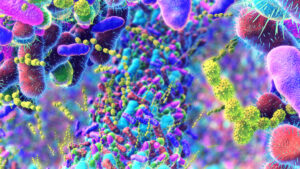I believe that possibly the most beneficial aspect of healing is often the most neglected one. The topic that immediately came to mind following my last post was mental health. The way someone responds and manages the stress in their life will shape a high degree of their wellness. It can be extremely hard to watch someone you care about suffer from stress, depression, and anxiety. Some events in life are traumatic and require the intervention of a therapist or counselor. However, I believe that a disciplined lifestyle can be a strong defense for our mental well-being. I will make two posts from this topic that investigates mental health from the standpoint of sleep and stress management.
There are dietary and supplemental options that can be helpful with stress management. Tryptophan is an amino acid that is known to increase serotonin production in our brain. Serotonin is a neurotransmitter that is responsible for our mood, cognition, and several other aspects of mental function. It is often discussed for its calming effects and potential in treating depression by elevating a person’s outlook in life. Like vitamins and minerals, amino acids are not produced in our bodies and require dietary intake. Some foods that contain tryptophan are turkey, red meat, tofu, and cacao to name a few. Dark chocolate that has a high percentage of cacao has been studied for its ability to positively impact serotonin output along with cognitive and heart health. Many anti-depression prescriptions aim to modulate serotonin production, but I will always seek a natural remedy to heal and bring balance that is without side effects.
Most people have heard of probiotics but not too many know about psychobiotics. Normally the word psycho will bring about a natural response of avoidance, but not with these helpful bacteria strains. We have a direct relationship between our brain and gut immune system through the trillions of bacteria that dwell in us. Two specific strains have been isolated and observed to have a positive influence on our mental state. Lactobacillus Helveticus and Bifidobacterium Longum appear to actively stimulate neurotransmitters in our brain and promote serotonin. I have not personally tried this type of neurological therapy, but research and online reviews suggest its potential for stress or anxiety.
The benefit and need for regular exercise applies to every part of our health and can affect each area when it is lacking. The convenient thing about beginning an exercise routine is that there is a type, duration, and intensity for everyone. Many include exercise for strength gain or weight loss, but the unseen reward is in its mental attributes. Exercise is a natural stress reliever through the releasing of endorphins, dopamine, and serotonin. Studies have shown that just walking for a period of at least thirty minutes a few times a week can strengthen and improve the hippocampus section of your brain. This section not only focuses on memory but also on emotional balance. I look at exercise as an investment that doesn’t cost me anything except time that is well spent.
One of the most important factors of maintaining a balanced emotional state is vitamin D. This hormone has a long list of benefits and specific roles that our bodies require for inflammation, cancer prevention, and neurological functions. Numerous studies have demonstrated a link between depression and low vitamin D levels. Personal research has led me to consider that the RDA recommendations are not always sufficient for optimal wellness. It is estimated that at least half of the U.S population is deficient and would benefit from supplementation. The dosage I take daily that contributes to my health is 10,000 iu. Regular testing is the starting point of maintaining adequate levels that will protect your health in many ways.
Lastly but most importantly, I believe mental health is greatly affected by our lifestyle in routine, habits, and relationships. All the right dietary measures or exercise can’t overlook the impact that these three can have. This can be a sensitive area of weakness for some who struggle to make the changes they know are best. Taking time to analyze and write down the details of your daily lifestyle can help identify the things that weigh on your mental health. If you’re struggling to drop a bad habit or helping someone who is, remember to be patient, consistent, and listen more than give advice.
Creating a detailed plan and routine that appeals to you can be a fun experience. You simply write down what a better you looks like and what steps are necessary to achieve it. Being focused on new interests with the desire to learn is a form of medicine that brings a smoother transition from old routines. I believe that the main points I focused on are part of the complexity that creates positive mental health. No matter where you are on this road we call life, know that you can overcome and will always come out better if you persist.




